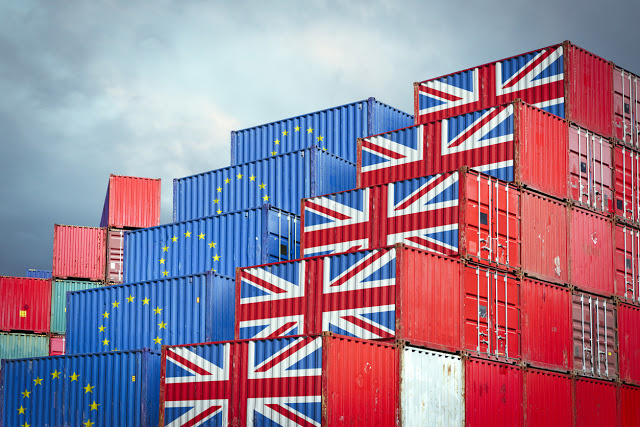The UK is some 15,195 km away from Australia, but Great Britain’s decision to leave the EU will still have implications for Australia. Brexit, along with HM Revenue And Customs decision to replace their 25-year-old Customs Handling of Import and Export Freight system (CHIEF) with the Customs Declaration Service (CDS) is understandably causing concern amongst supply chain managers and traders.
The National Audit Office report, states that the UK should prepare itself for more than 255 million customs declarations a year post-Brexit, an increase of 200 million. The anticipated increase will place significant pressure on both the CDS system and the ageing CHIEF system. With an ever-changing Brexit deadline, this is an unpredictable time not only for politics but also for the logistics industry. After years of smooth trading, freight forwarders and supply chain managers must now navigate changes in compliance requirements and legal requirements. However, the post-Brexit 21-month ‘transition’ or ‘grace’ period aims to provide ample time for people and businesses to adjust.
During 2018, Australia shipped over US$252 billion worth of products to destinations worldwide, and the UK is one of Australia’s top trading partners. However, Australia’s trade relationship with the EU surpasses trade with the UK by 3 to 1(1). So, despite past tension, Australia must now work to strengthen ties with the EU, as well as continuing to develop opportunities with the UK.
Brexit is a precarious situation, but it nevertheless provides a good opportunity for growth. Great Britain has indicated that it will enter into new trade partnerships post-Brexit and Australia is well-positioned, despite past history, to further nurture its relationship with Europe. Australian companies who conduct trade with the UK and the EU, or import or export from the UK to the EU or vice versa should prepare for potential supply chain interruptions. Therefore, businesses are advised to use the Brexit deadline extension as an opportunity to re-optimise their supply chains.
The Department of Foreign Affairs and Trade reports that the imports and exports considered to be most at risk during Brexit include:
Major Australia-UK exports:
Gold.
Lead.
Alcoholic beverages.
Pearls & Gems.
Major UK-Australia imports:
Passenger motor vehicles.
Medicaments (incl veterinary).
Pharmaceutical products (excluding medicaments).
Alcoholic beverages.
Major Australian services considered to be most at risk include:
Exports:
Personal travel, excluding education.
Professional, technical and other business.
Imports:
Personal travel, excluding education.
Professional, technical and other business.
Forewarned is Forearmed
What You Should Do (2):
Consider your volume of trade with the UK and the EU and identify potential supply chain implications.
Obtain professional advice for importing and exporting to the UK and the EU.
Consult with a Customs Broker, Freight Forwarder or Logistics provider and obtain legal advice to ensure your level preparedness.
Australian businesses can further prepare for Brexit by staying informed and by stockpiling before the ‘transition period’ ends. Stay ahead of the game by importing larger quantities of goods from the UK to pre-empt increased tariffs and mitigate disruptions to your supply chain by obtaining adequate professional advice. Customs experts, freight forwarders and supply chain managers will help you identify potential risks to your business, and will ensure you remain compliant with Customs Clearance. Whatever the outcome, in the case of Brexit, forewarned is forearmed, and ignorance is your enemy.
(1) Trade and Investment Queensland, Submission 45, p. 4.
Recent posts
Sign up and stay update
Follow us
